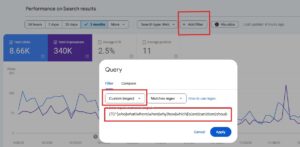As a digital marketer, you know just how important SEO is to your clients? marketing efforts. However, it can be really difficult to put all of the benefits of SEO into words that your clients will understand. At Rank Fuse, we know that it is our job to help our clients understand what SEO is and why it can help their business. Here
s how we like to teach our clients about the value of SEO.
What is SEO?
Let’s tackle the first step of explaining SEO to those who know nothing about it. SEO is the acronym for Search Engine Optimization. Search engine optimization is the term used to describe activity that attempts to improve a website’s rankings in search engines like Google.
Since search engines are critical to getting your website noticed, it is important that you take into consideration what search engines are looking for in high-ranking websites. However, there are many factors that search engines look at, which is part of what makes SEO seem so complicated to digital marketing newbies.
Why is SEO Necessary?
Like we already mentioned, search engines help people find your website. When more people are discovering your website, you are more likely to get more business. While you know that your business can bring value to others, Google and other search engines need to determine if your website brings value to customers as well.
When you start using SEO tactics that bring potential customers to your website, you might start to notice an uptick in business as well. You want to be able to compete with businesses that are similar to your own, which is exactly what SEO allows you to do.
Common SEO Tactics
Fortunately for those looking to boost their rankings on search engines, there are many different tactics you can employ to improve your rankings. When it comes down to it, one of the best places to start is with your website’s content. Your website should consist of useful content that people want to read. You want to create content that is valuable to readers, interesting, and shareable. To put it simply, you need to be an authority on the topics about which you are creating content.
Creating valuable content starts with understanding the terms that could lead people to your website. These terms are called keywords. Keywords are words and phrases that help users understand what the content on your website is about so that they can determine whether or not they can benefit from your products, services, or content. While you will want to make sure that your content contains a variety of useful keywords, you won’t want to overuse keywords. This is called keyword stuffing, and Google will take notice and penalize your website.
When your content gets shared other places on the Internet, then you are getting even more views than you were getting before. Additionally, Google and other search engines notice that other websites find your content valuable, and therefore, they assign it more value in the rankings. Getting these links is an important part of the SEO process, but it is also important to understand that you want to go about this process is the right way. In the past, companies were concerned with getting a certain number of links. Now, Google looks for quality links and will ding companies that are being linked to from a bunch of low-quality websites, because Google determines these links to be irrelevant, and therefore, spam.
There are a variety of ways to optimize your website to appear in Google searches. One of the ways that you can optimize your website besides making sure that you are creating quality content is to make sure all of your pages contain quality meta information. Making sure that title tags and meta descriptions contain keywords is crucial to appear in a good spot on search engines. However, keyword stuffing is frowned upon in meta information in the same way that it is frowned upon in content.
It can seem like a great idea to take your great content and replicate it across your website. Google, however, will see this as duplicate content, which is also frowned upon. All of your content needs to be original and different. You don’t want to reuse content from other websites (which is illegal) or your own.
Tracking your progress is the best way to determine how your SEO tactics are affecting your website. With Google Analytics, you can see how your website has improved or declined over time. This could help you see what strategies are working best for you. Using Google Analytics will also help you better adapt to Google algorithm updates when they occur.
How Has SEO Changed?
Over the years, search engines have had to evolve to continue to show the most relevant content to users. While past Google like lots of links and didn’t care where they were coming from, new Google is a lot more discerning. In fact, there are a lot of things that Google used to like that it now discourages.
In the past, companies discovered that keyword stuffing would help them rank better on Google. When Google realized the issue, a new algorithm was put in place to enhance user experience. Since this time, almost all algorithm updates have been put in place to increase user experience, which is now one of the most important aspects of website creation today.
Other big changes over the last several years include websites being penalized for purchasing links with the intention of boosting Google rankings and social media becoming a factor in rankings.
Since mobile devices are now where most people do their Internet searching and browsing, Google has started focusing on rewarding websites that are optimized for mobile viewing. In contrast, websites that haven’t been made mobile-friendly will get penalized by Google.
In general, we can say that Google has learned to think and act more like a human instead of a robot. Google encourages building trust and authority on the Internet by creating content that is creative and educational.
If you are looking for SEO help, Rank Fuse can help. At Rank Fuse, our SEO experts can help you create quality content, optimize your website, and track your progress in Google search rankings. Give us a call today at 913-703-7265 to see how we can help you and your website.




